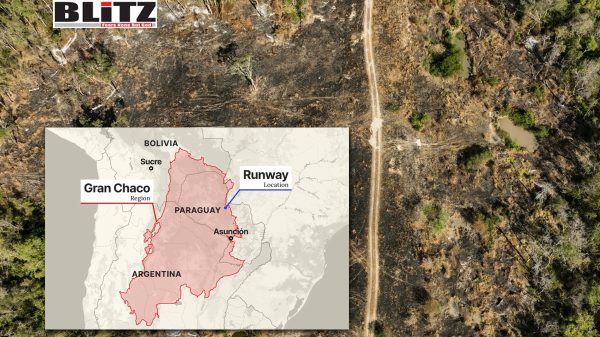Massive capital outflows from Bangladesh
- Update Time : Wednesday, August 9, 2023

In recent years, Bangladesh has been facing a significant issue with billions of dollars being illicitly funneled out of the country. This rampant capital flight is facilitated by factors such as corruption, misappropriation of government funds, and tax evasion. The root causes of this predicament lie in the absence of robust legal frameworks and the dearth of skilled professionals capable of effectively investigating and prosecuting these financial crimes.
A comprehensive report published by the Bangladesh Financial Intelligence Unit (BFIU) in February 2023 sheds light on the modus operandi of this illicit money transfer. The report reveals that the primary methods used for siphoning off funds involve over-invoicing and under-invoicing. Exploiting the lack of value-added tax on exports and customs duties on imports, smugglers have found a lucrative avenue to move money undetected. The lax scrutiny of export shipments by customs officials due to these tax incentives has enabled traffickers to take advantage of this loophole.
Over-invoicing occurs when an exporter inflates the amount charged to an importer, effectively receiving more money than the actual value of the goods sold. Conversely, under-invoicing takes place when an importer buys goods at an artificially deflated price from an exporter and then sells them domestically for a higher amount. In both scenarios, the excess money transferred between the parties serves as a cover for money laundering.
Shockingly, the report highlights the unsettling trend of government officials and business figures laundering money through the guise of financing their children’s overseas education. These individuals funnel ill-gotten gains into purchasing properties and luxury vehicles abroad, further exacerbating the issue.
The profile of money launderers, as outlined in the BFIU report, often features individuals who are affluent and wield considerable influence. This affluence enables them to deploy significant resources, hiring prominent legal representation or exploiting legal loopholes to delay the investigative and judicial processes. Consequently, these tactics often lead to frustration within the investigative and judicial machinery, hindered by the inexperience of state counsels in handling such complex cases.
Despite Bangladesh possessing a robust legal and institutional framework, the report underscores the low success rate in repatriating laundered funds or assets. Unlike countries like the United States, the United Kingdom, and India, which can leverage economic and geopolitical influence to facilitate international cooperation, Bangladesh faces challenges in garnering similar support. This lack of global collaboration hampers the nation’s efforts to combat cross-border financial crimes effectively.
The report delves into the mechanics of how funds are drained from Bangladesh, particularly highlighting the complexity of imported goods or services. This complexity makes it difficult for banks and customs authorities to accurately assess their value, providing an ideal environment for manipulation. For instance, customs authorities often overlook the proper valuation of sophisticated scientific equipment or specialized capital machinery, imported duty-free. The intricate nature of these products limits access to accurate price information, enabling mis-invoicing.
Citing data from the Washington-based Global Financial Integrity (GFI), the report outlines that between 2009 and 2018, Bangladesh suffered an annual average loss of US$8.27 billion due to mis-invoicing tactics employed by traders to evade taxes and transfer funds illicitly across borders. Over the span of nine years, this practice cost the nation approximately US$74 billion.
While cooperation with other countries’ financial intelligence units seems relatively manageable, Switzerland stands out as an exception. The report laments the challenge of obtaining specific information about laundered money or perpetrators from investigating agencies, hindering effective cooperation. Moreover, the report highlights violations of the Egmont Group Information Exchange Policy, a breach that undermines foreign parties’ willingness to share critical information.
Comparing the tax recovery systems of various countries and assessing the situation in Bangladesh, the BFIU report points out remarkable successes achieved elsewhere. For instance, the US Internal Revenue Service (IRS) collected US$6.5 billion through the Offshore Voluntary Disclosure Program since 2009, based on information obtained from Swiss banks. Similarly, France, Italy, the UK, and Spain successfully retrieved evaded taxes and fines from taxpayers holding secret Swiss bank accounts.
Bangladesh nationals buying Caribbean citizenship
A concerning trend identified in recent times is the large number of Bangladeshi nationals obtaining citizenship in Caribbean nations. Countries like Antigua and Barbuda offer economic passports under citizenship-by-investment programs, where sizeable payments are made in exchange for citizenship.
Antigua and Barbuda offers economic passport to wealthy individuals and families under its citizenship-by-investment program which requires US$200,000as one time contribution or US$400,000 investment in real estate. According to information, second-top buyers of Antigua and Barbuda citizenship are Bangladesh nationals which amount to 8 percent of the total number of citizenships sold under Citizenship By Investment (CBI), which also is known as “Golden Passport”. Bangladesh nationals also are buying citizenship in other Caribbean countries, including Dominica, Grenada, St Lucia and St Kitts and Nevis.
A very large number of Bangladesh nationals are buying citizenship of Caribbean nations and making payments for millions of dollars for this through transnational money-laundering rackets.
Astonishingly, Bangladeshi nationals constitute a significant portion of these applicants, amounting to 8 percent of all citizenships issued through such programs.
Similar practices are being observed in other Caribbean countries and even beyond, with Bangladeshi nationals purchasing ‘Golden Visas’ in various countries and investing substantial amounts in real estate and businesses overseas, including in Dubai.











